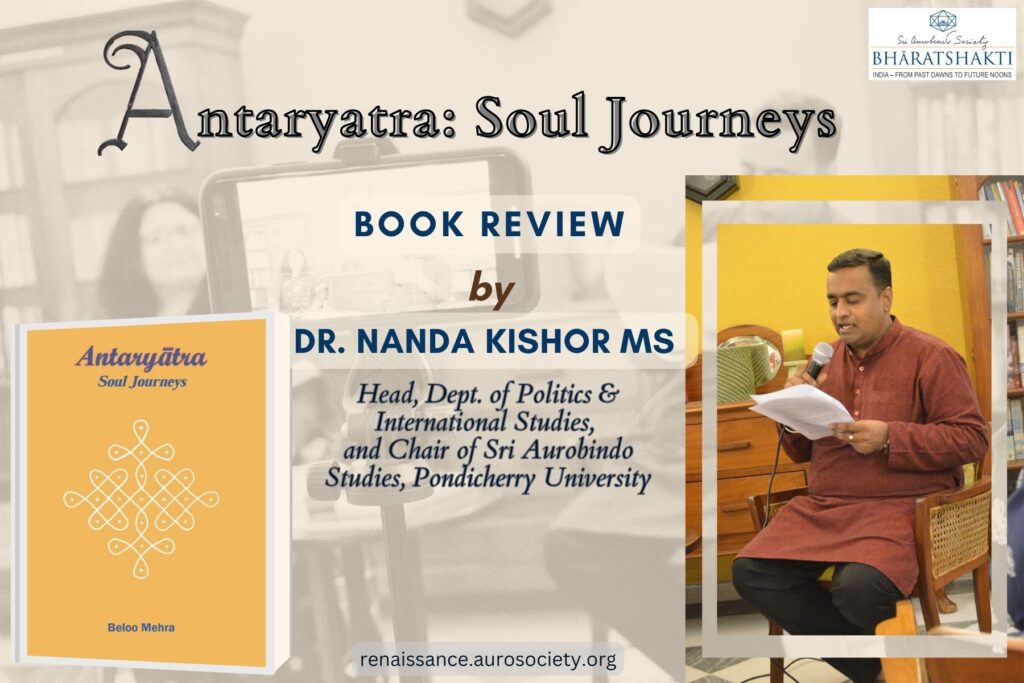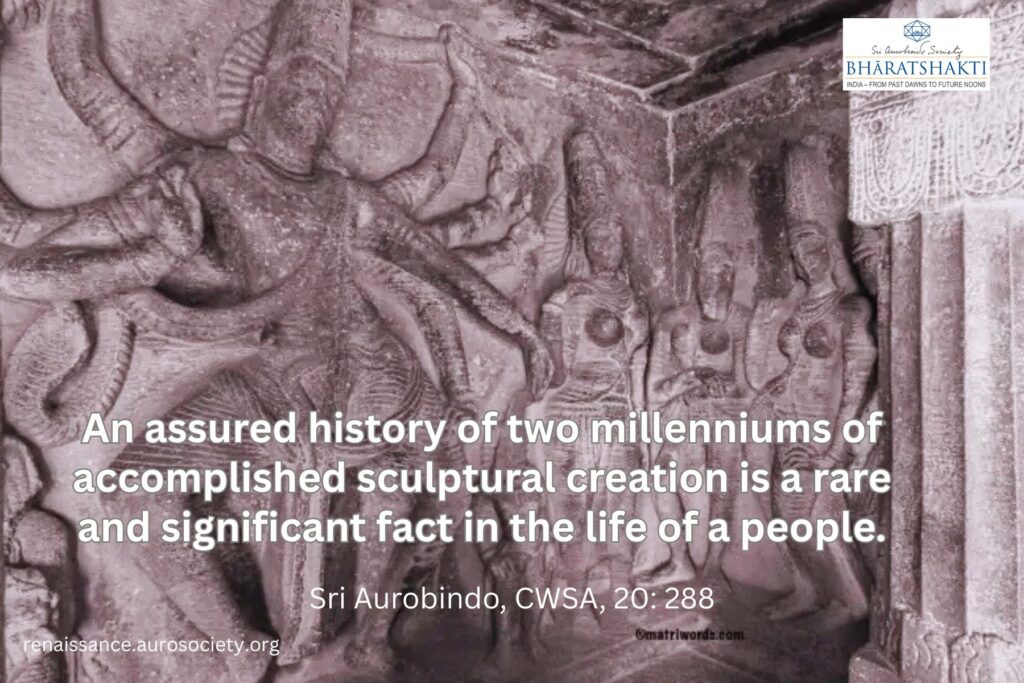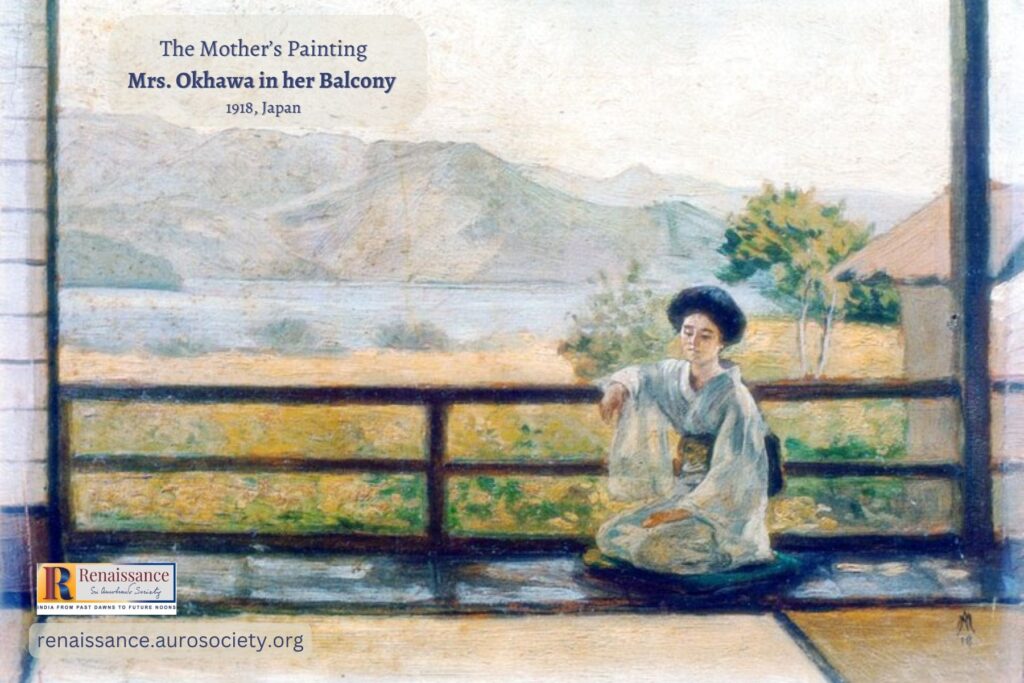Volume II, Issue 7
Author: Ananda Reddy
Editor’s note: For our ‘Book of the Month’ series we feature a very special book titled ‘Deliberations on The Life Divine –Volume 1‘ by Dr. Ananda Reddy, a renowned scholar of Sri Aurobindo Studies. This is part of an ongoing series of books based on the author’s deep discourses on Sri Aurobindo’s philosophical magnum opus ‘The Life Divine‘. Dr. Reddy’s lectures delivered over several years on each chapter of ‘The Life Divine‘ are being edited and published in several volumes (seven are available so far).
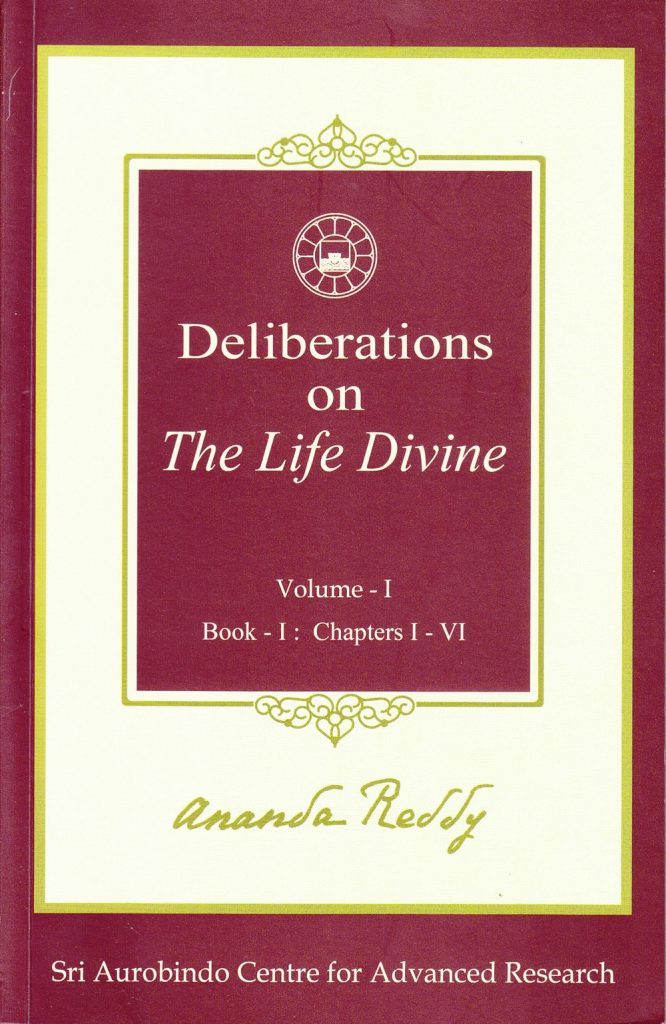
For this issue of Renaissance focused on the theme of Aspiration, we feature Dr. Reddy’s deliberations (2007, pp. 12-25) on the very first chapter of The Life Divine, titled “The Human Aspiration.” Given the deep significance of the topic, we present the author’s entire chapter (with permission), in two parts. Only a few minor edits such as adding the headings, highlighting key points and some reorganising of paragraphs have been done for this digital presentation.
More details about the author and the book are included at the end of part 2.

The Dawn of a New Age
When we open the first chapter of The Life Divine, we see a very significant Quotation from the Rig Veda. It is a very famous quotation on Usha, the Dawn. Interestingly, Savitri too opens with the canto named ‘The Symbol Dawn.’ Perhaps, through both these books, Sri Aurobindo wants to show us a glimpse of the Dawn of a new age.
The first quotation in the first chapter of The Life Divine reads:
She follows to the goal of those that are passing on beyond, she is the first in the eternal succession of the dawns that are coming,―Usha widens bringing out that which lives, awakening someone who was dead. . . What is her scope when she harmonises with the dawns that shone out before and those that now must shine? She desires the ancient mornings and fulfils their light; projecting forwards her illumination she enters into communion with the rest that are to come.
~ Kutsa Angirasa – Rig Veda, I. 113. 8, 10
When I read this quotation, I felt that this is precisely what The Life Divine is all about. It is almost a single-line synopsis, a single quotation which tells us much about The Life Divine.
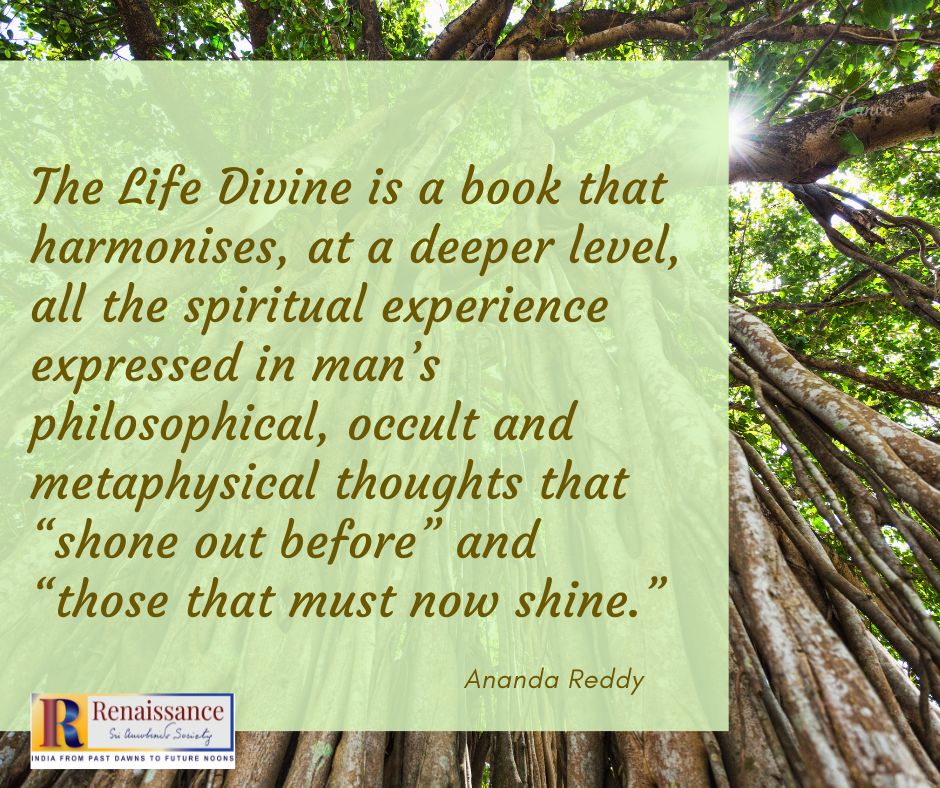
Announcing the Dawns of the Future
Let us focus on these lines:
“What is her scope when she harmonises with the dawns that shone out before and those that now must shine?”
The Life Divine is a book that harmonises, at a deeper level, all the spiritual experience expressed in man’s philosophical, occult and metaphysical thoughts that “shone out before” and “those that must now shine.” It is not only a synthesis of past experience; It is also an announcer of the Dawns of the future. This portion of the quotation — “She desire the ancient morning and fulfils their light” — is very apt in the context of The Life Divine, especially the phrase “fulfils their light”, for The Life Divine too ‘fulfils’ the ‘ancient’ thought.
It is interesting to see how Sri Aurobindo analyses the different arguments from different philosophers, those from the West as well as the Indian acharyas like Shankaracharya, Ramanujacharya and Madhvacharya. All of them seem to find their fulfilment in The Life Divine, because each of the major philosophical concepts or spiritual experiences, be it from the West or the East, that has passed the test of time and is useful for the next evolutionary step of mankind, finds its place in the total scheme of the book.
The Life Divine is like a cosmic puzzle, and it is as if Sri Aurobindo puts together all the pieces of the puzzle. It is because he has completed the cosmic puzzle all the way up to the next level of evolution that there is a deeper fulfilment of each major philosophy in The Life Divine. This is precisely what Sri Aurobindo has done — every significant argument, every spiritual experience is seen in terms of its usefulness for the future. All that does not fall in line with the evolutionary pattern is rejected.
Like the goddess of Dawn, Usha, Sri Aurobindo, while harmonizing the past philosophers, enters into communion with the future Dawns that are yet to come!
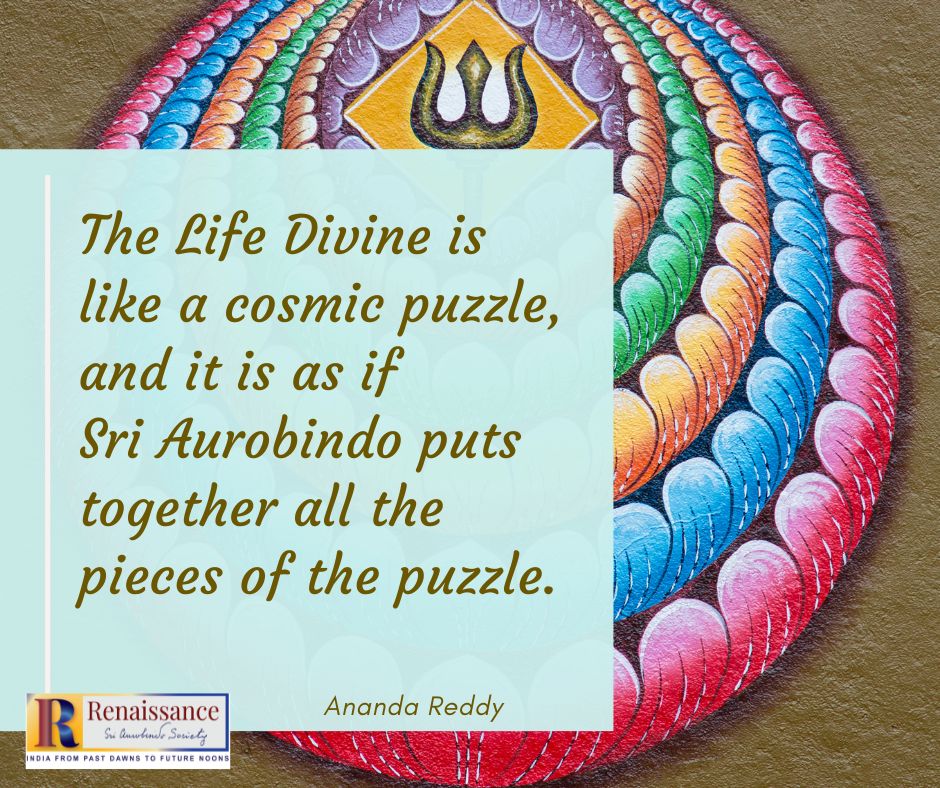
The Earliest Preoccupation of Man
The very first paragraph of Chapter I is indeed a brilliant summary of the above-mentioned quotation from Kutsa Angirasa, especially in regard to this portion: “what is her scope when. . . she enters into communion with the rest that are to come.” Sri Aurobindo writes:
The earliest preoccupation of man in his awakened thoughts and, as it seems, his inevitable and ultimate preoccupation,—for it survives the longest periods of scepticism and returns after every banishment,—is also the highest which his thought can envisage. It manifests itself in the divination of Godhead, the impulse towards perfection, the search after pure Truth and unmixed Bliss, the sense of a secret immortality.
The ancient dawns of human knowledge have left us their witness to this constant aspiration; today we see a humanity satiated but not satisfied by victorious analysis of the externalities of Nature preparing to return to its primeval longings. The earliest formula of Wisdom promises to be its last,—God, Light, Freedom, Immortality.
~ CWSA, Vol. 21, pp. 3-4
This paragraph takes us almost from the beginning to the end of human evolution. The earliest preoccupation of man with “God, Light, Freedom, Immortality” has been there from time immemorial, right from the beginning, and man has pursued these ideals, consciously or unconsciously, not only in India or in the West, but in all civilisations, from the darkest ones to the most enlightened ones.
Sri Aurobindo uses a precise phrase, “earliest preoccupation of man in his awakened thoughts,” only to stress that we should think not only of those Rishis meditating in secret caves but also of that portion of enlightened humanity which was awakened in its thoughts. The awakened ones are those who analyse and question the meaning of life — Why am I born? What is death? What is the aim of my birth? And so on.
God, Light, Freedom and Immortality
When we trace the evolutionary line in civilisation, we find that the pursuit of these four lofty and noble ideals (God, Light, Freedom and Immortality) has always preoccupied the awakened thought of humankind.
It is quite apparent that there is a contradiction between the human aspiration for “God, Light, Freedom, Immortality” and the present life of humanity. Normal life, as we experience it, is quite contrary to these higher and deeper aspirations. Constant pain and suffering, deep ignorance and falsehood and death surround us.
How can we then really integrate all this in the light of what Sri Aurobindo is writing? Is it that Sri Aurobindo as a philosopher ignores or bypasses the present realities of human life?
No! On the contrary, Sri Aurobindo accepts fully the present state of human consciousness and the present conditions of human life. He does not hesitate to point out the contradiction in our consciousness and life, because despite these contradictions and constant failures of humankind, such as violence, wars, atrocities, hypocrisy and corruption of consciousness, man still aspires, and his aspiration “survives the longest periods of skepticism and return after every banishment.”
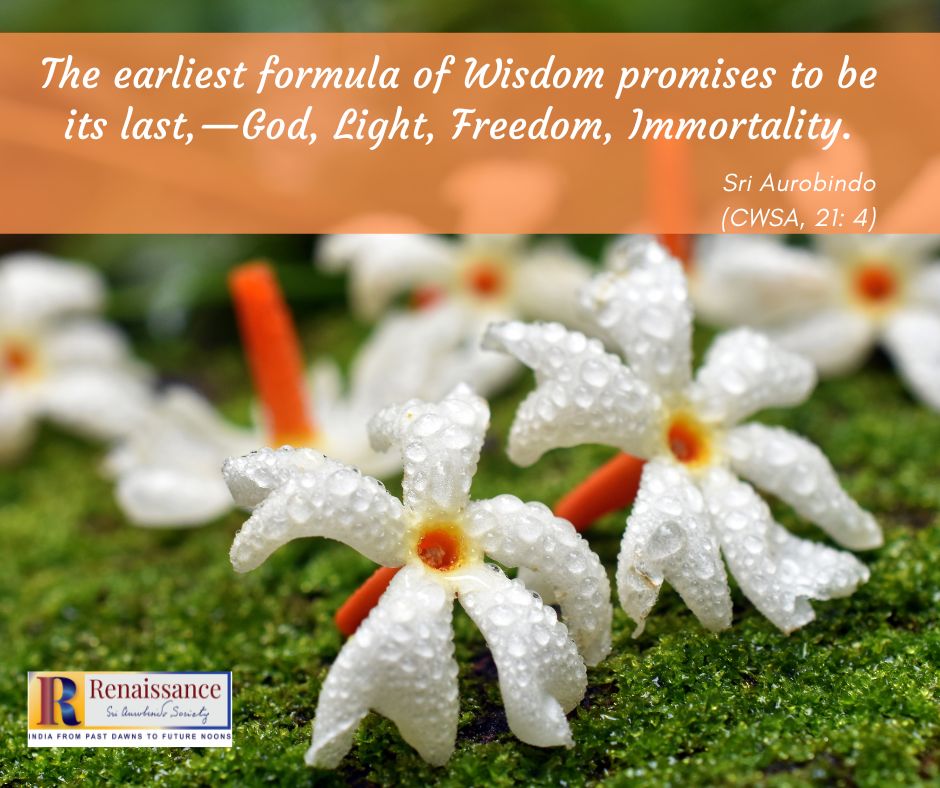
Return to Original Aspirations after Every Banishment
Sri Aurobindo indicates that man, in spite of all the failures in his attempts to realise his higher aspirations, has always returned to these original aspirations after ‘every banishment.’ We see in history that there have been periods of excessive violence or an abyss of darkness and falsehood. Even in the present day, we are going through a never-ending upsurge of terrorism which has indications of globalising itself.
But we see also that something happens after these dark periods, i.e., there is a renaissance, a rejuvenation. A new wave of energy or force takes over human consciousness. A greater light descends, and there is an apocalypse of a higher consciousness that brings new hope, new light, and once again humankind aspires for the next step in evolution.
In brief, humankind seeks perfection eternally at every level.
This progress comes through revolutionary individuals, like Leonardo da Vinci, Albert Einstein, Swami Vivekananda and others. Or else, it comes through a period of general evolutionary progression like that of the ‘renaissance’ or the ‘enlightenment’ in Europe.
Sri Aurobindo’s Basic View Regarding the World’s Working
Man’s innate efforts are to establish an infinite freedom, to establish peace and self-existent bliss and to establish immortality in a perishable formation of mind, life and body. This is Sri Aurobindo’s basic view regarding the world’s working.
He accepts the hard reality of existence, but at the same time, he has the inner vision of things and happenings. He goes beyond the forms, in which existence presents itself on the surface level, and deals with the fundamental truths of existence. It is because of this inner vision and understanding that he can write that “the direct opposition appears rather as part of Nature’s profoundest method and the seal of her completest sanction.” (CWSA, Vol. 21, p. 4)
In this manner, Sri Aurobindo is not only a metaphysician par excellence, or a thorough social psychologist or a historian but also a deep-visioned spiritual pragmatist.
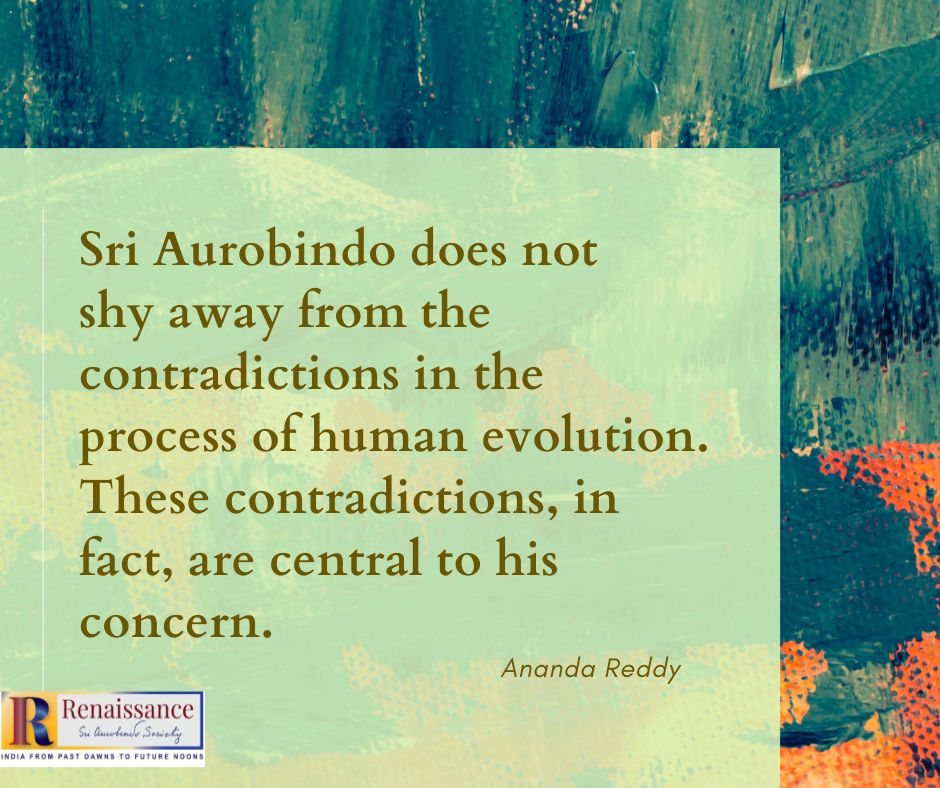
Contradictions are Central to His Concern
In fact, some of Sri Aurobindo’s major works, such as The Ideal of Human Unity, The Human Cycle, The Foundations of Indian Culture, The Secret of the Veda, etc., strengthen his spiritual point of view: spirit is the fundamental truth of existence and all life and mind and body are only its manifestations.
This seems to have been his central purpose in writing so deeply and extensively on sociology, philosophy, yoga, politics, etc. It was to see if they were incompatible or inconsistent with the spiritual truths.
In a way, it was an attempt to harmonise or synthesise the forms in which existence presents itself with his own integral vision of life, with his own new-found spiritual experience. His cosmic vision embraces the apparent contradictions of the present conditions of man’s life and the future possibilities that await him.
So, it is clear that Sri Aurobindo does not shy away from the contradictions in the process of human evolution. These contradictions, in fact, are central to his concern.
Sri Aurobindo envisages that from the present animal and egoistic consciousness man shall attain the plenary supramental illumination; man shall discover in his body, which is subjected to death, an immortal life; man shall gain infinite bliss in his very being that is now a field of pain and suffering. However paradoxical and impossible such a transformation may seem, such contradictions are, on the contrary, Nature’s profoundest method of progress in evolution.
The ordinary ‘material intellect,’ i.e., those who are delimited by the outer consciousness, cannot accept these apparent contradictions, but Sri Aurobindo with his inner vision sees beyond these paradoxes and for him the manifestation of God in Matter is the centre of his spiritual experience.
Continued in Part 2
Click HERE for More Books Featured in Renaissance

~ Design: Beloo Mehra

